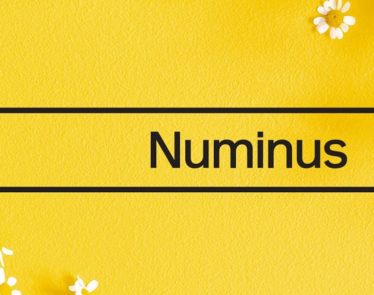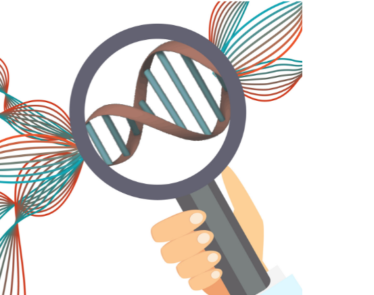
Non-traditional therapies are coming a long way from their stigmatized roots. Rising rates of serious mental health issues and unreliability of traditional mental health treatments have spurred research into treatment forms utilizing once stigmatized and criminalized drugs. The results have been promising enough that the pharmaceutical industry around therapeutic MDMA, ketamine, psilocybin, and other psychoactive substances is taking shape and gaining momentum. Non-traditional therapies are gaining government regulatory approval and, in some cases, even breakthrough therapy designations, and the companies moving this revolution forward like Numinus Wellness Inc. (TSXV:NUMI) (OTCPK:LKYSF), Johnson & Johnson (NYSE:JNJ), Takeda Pharmaceuticals (NYSE:TAK), Optimi Health (CSE:OPTI), and Tryp Therapeutics (CSE:TRYP) (OTCPK:TRYPF) are finding huge opportunity here.
Numinus Wellness Advances MDMA-Assisted Therapy
Integrated mental health company Numinus Wellness Inc. (TSXV:NUMI) (OTCPK:LKYSF) is one of the companies working to advance innovative treatments like psychedelic-assisted psychotherapy into safe, evidence-based, accessible solutions. Through its Numinus Health segment, the company delivers innovative treatments to address physical, mental, and emotional health, through clinics and virtual services, while Numinus R&D conducts implementation science, and Numinus Bioscience serves as the company’s applied research and IP development lab.
In partnership with the Multidisciplinary Association for Psychedelic Studies (MAPS) Public Benefit Corporation, Numinus is conducting a single-arm, open-label, compassionate access trial for MDMA-assisted therapy for treatment of patients with post-traumatic stress disorder. On February 17, the company announced that the trial has made significant progress, successfully transitioning to the pre-implementation stage at Numinus’s Vancouver clinic.
“We are excited to share an update on the progress of our MDMA compassionate access trial with the full recognition that existing therapies for PTSD are inadequate,” Numinus CEO Payton Nyquvest said in the company’s release. “At Numinus, we are pleased to help foster a promising regulatory landscape that will contribute to a better understanding that psychedelic-assisted psychotherapies are a viable, safe, and necessary avenue for expanding existing treatment options. We look forward to continued collaboration with MAPS PBC and will work together to provide those experiencing PTSD with more treatment options.”
On February 8, Numinus completed the previously announced acquisition of Mindspace Psychology Services Inc. The Montreal-based Mindspace is an industry leading full-service mental health clinic staffed by a team of PhD-level psychotherapists. Mindspace launched Psychedelic Harm Reduction and Integration programming in 2019.
“Adding Mindspace to the Numinus platform will provide strong synergies for both companies,” Dr. Devon Christie, Medical Director at Numinus and a MAPS-trained therapist for the delivery of MDMA-assisted psychotherapy, said of the December 15 announcement of the acquisition. “The companies have similar values and complementary strengths, which make this a strong corporate and cultural fit. We are also proud to grow our presence nationally through this announcement.”
Non-Traditional Therapies Make Major Breakthroughs
In response to a worsening mental health crisis and the difficulty of treating common mental health issues with traditional therapies, innovative life sciences companies are conducting vital research and development. Tryp Therapeutics (CSE:TRYP) (OTCPK:TRYPF) is currently running a research program on psilocybin for neuropsychiatric disorders while the company also works on developing a synthetic form of psilocybin for clinical use. On February 16, Tryp announced that the company had begun the process of manufacturing a demonstration batch of 200g non-GMP psilocybin doses as part of a series of steps towards formulating and developing a cGMP psilocybin therapeutic treatment.
Also working with psilocybin, Optimi Health (CSE:OPTI) is preparing an evolving product family of functional mushroom-based formulations to help transform and “optimize” human development. Recently, the company announced that it had received a Research Exemption from Health Canada, which authorizes its proposed research and development protocols for both psilocybin and psilocin.
Other companies are looking to ketamine and ketamine-like drugs as a promising treatment for treatment-resistant depression. Japanese pharmaceutical company Takeda Pharmaceuticals (NYSE:TAK) has been overseeing clinical trials on a synthetic ketamine alternative that the company says replicates ketamine’s antidepressant action with fewer risks.
Spravato, a ketamine-derived nasal spray for treatment-resistant depression developed and marketed by multinational pharmaceutical and CPGs giant Johnson & Johnson (NYSE:JNJ) received authorization from the European Commission on February 8. The drug had already received approval from the FDA in 2019, becoming the first materially new treatment for depression to hit the market in decades.
Companies like Numinus Wellness that are researching and developing non-traditional therapies like MDMA-assisted therapy are helping to bring forward a new era of mental health treatment.
Click here to find out more about Numinus Wellness.
Featured image: DepositPhotos © SergeyNivens












